News
2025
Please check out all the fabulous things the AAAS Department has been working on in our 2023–2025 newsletter linked here.
In what follows, we have not always identified everyone as we would have liked: please let us know so that we can make adjustments in the digital edition.
If you are a Brandeis alum, an AAAS alum, or neither, we are grateful for your love and support, and we hope you stay in touch!
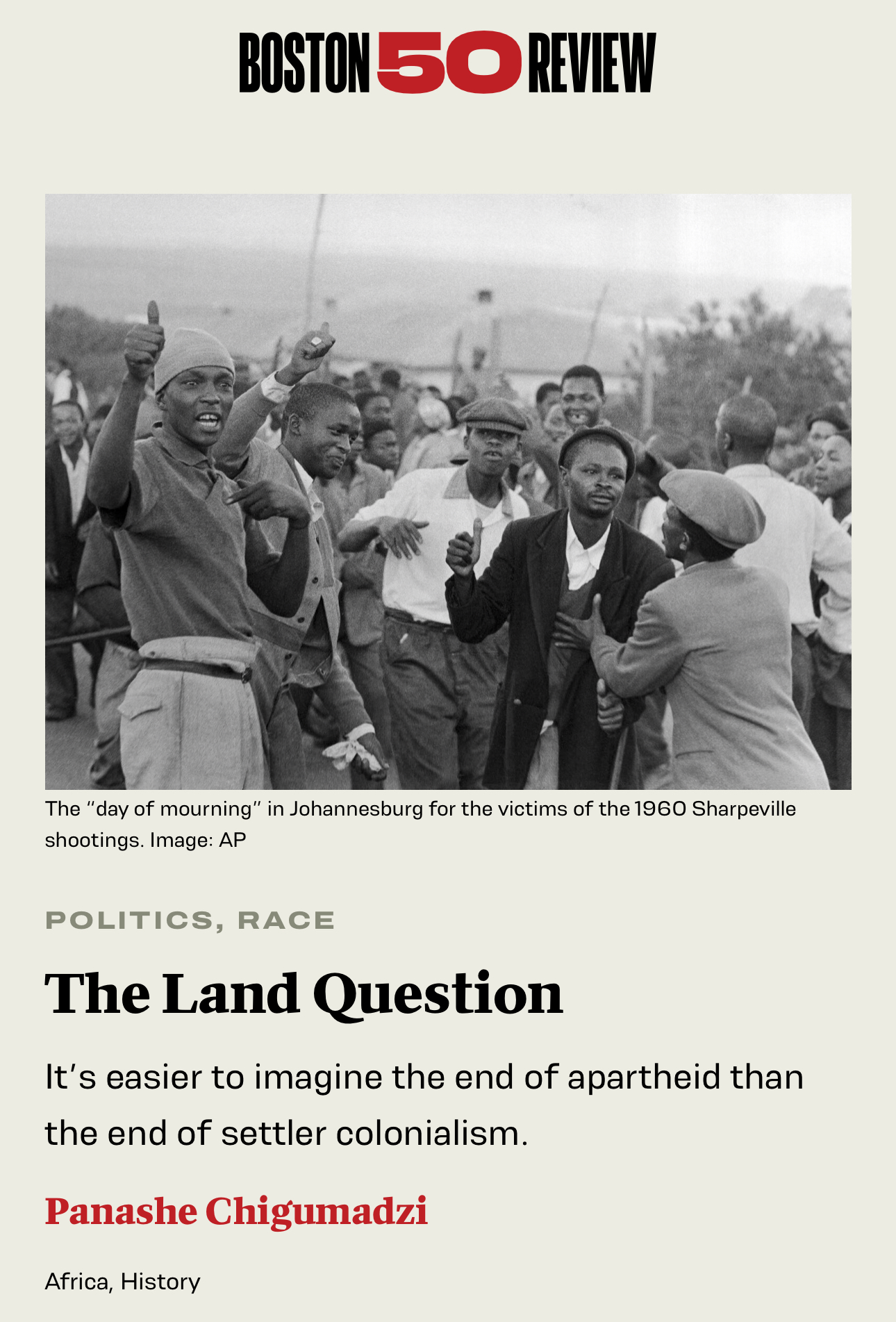
Titled, "The Land Question," -- based on previous lectures (“Apartheid isn’t the Question, Settler Colonialism Is") this essay maps out the world-historical geopolitics of the land question and indigenous sovereignty since Europe's "discovery" of the "New World" in 1492, the settler colonial right of conquest in the 1493 Papal Bull and the rise of chattel slavery, as it contends that apartheid's overrepresentation in global left discourse has the dangerous consequence of obscuring more fundamental questions of structural dispossession embedded in today's liberal international order. Perhaps most importantly, paying attention to South African settler society's 17th-century origins and development as a slave society (and not just a society with slaves) wherein the enslaved outnumber settlers, makes it clear how liberalism's apartheid paradigm obscures slavery's centrality in structuring settler-colonial modernity and European settlers' response to the so-called "Native Question" not just in South Africa (where, for example, you cannot understand apartheid-era Masters and Servants Acts without understanding master and slave relations at the Cape), but across the world, both before and after slavery's legal end. As part of its metacritique of the erasure of Black South African intellectual traditions in the global left's apartheid discourse, the essay reminds us that the renewed public and scholarly attention to slavery's afterlives well into the post-apartheid era is deeply indebted to the incredible work of black feminist scholars, activists, visual artists, filmmakers, novelists, and poets such as our very own Gabeba Baderoon, Desiree Lewis, Yvette Abrahams, the late Zoë Wicomb, Pumla Dineo Gqola, Yvette Christiansë, Rayda Jacobs, Berni Searle, Dianna Ferrus, and Gail Smith.
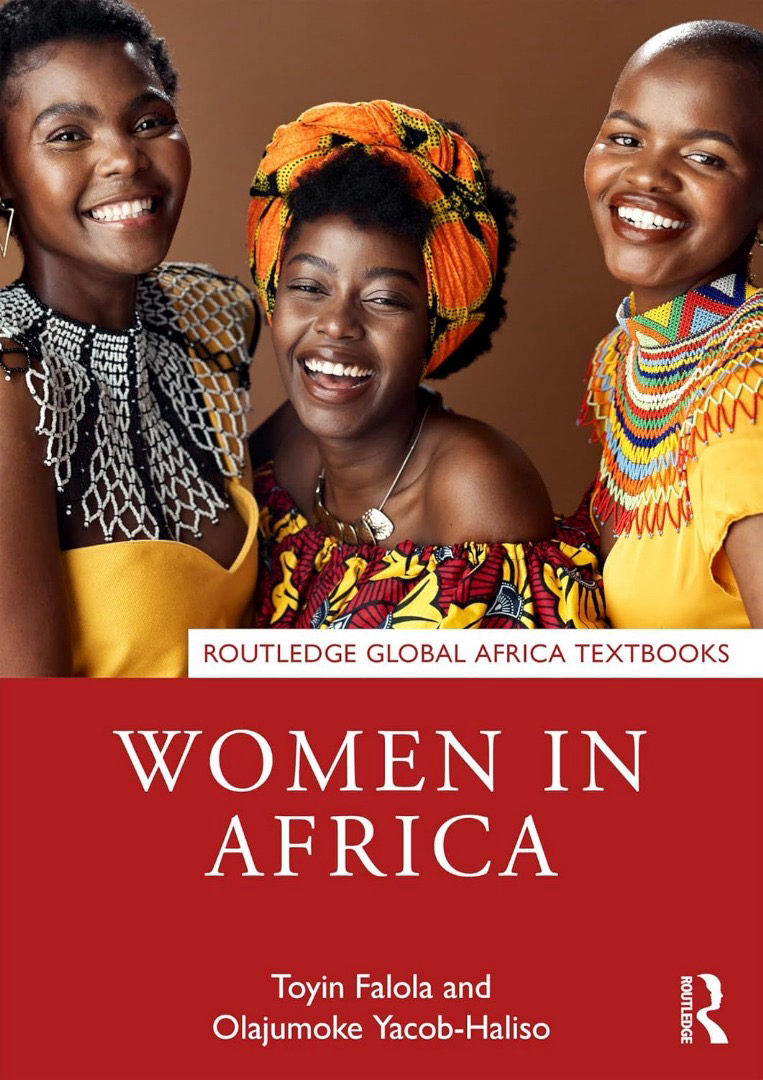
This book introduces readers to the rich and diverse experiences of women across the African continent, covering their socio-cultural, political, and economic realities from the precolonial era right up to the modern day. In many precolonial African societies, women were empowered and considered to be important participants in the social structures and political systems that managed their communities, but during the colonial era, women were often marginalized. Now, across the continent, women are reasserting their agency. This book explores the various ways in which gender has been constructed in different African cultures across history and how this has impacted the lived experiences of women. The book encompasses a broad range of topics, including history, health, sexualities, gender-based violence, motherhood, education, economic activities, science and technology, religion, popular culture, politics, peacebuilding, feminism, literature, social media, and migration. Engaging and compelling, this book invites us to think again about the changing roles, identities, and contributions of African women across time and space. It is the perfect introduction for any student of gender or African studies, as well as for anyone looking for a reader-friendly guide to the subject.
Professor Amber Spry's recently published article, "The #RiceBreaker: Facilitating Intercultural Dialogues in the Classroom by Engaging Shared Experiences", has been featured in the Journal of Political Science Education's digital collection on "Creating and Maintaining an Inclusive Classroom, Curriculum, and Political Science Discipline." It is the first article in the series, and one of the most highly viewed. Join us in congratulating Professor Spry, and please make sure to check out the article!
Professor Toyin Falola writes about how Professor Olajumoke Yacob-Haliso is a strong advocate of Babcock University and a pioneer of African Studies. Join us in congratulating Professor Yacob-Haliso, and read this article to learn more about her fabulous work!
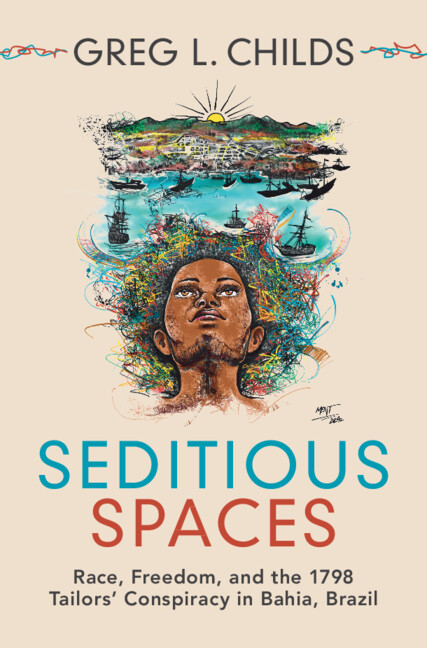
Check out Professor Greg Childs' new book, Seditious Spaces: Race, Freedom, and the 1798 Tailors' Conspiracy in Bahia, Brazil, published by Cambridge University Press in March 2025.
Seditious Spaces tells the story of the Tailor's Conspiracy, an anti-colonial, anti-racist plot in Bahia, Brazil that involved over thirty people of African descent and one dozen whites. On August 12, 1798, the plot was announced to residents through bulletins posted in public spaces across the city, demanding racial equality, the end of slavery, and increases to soldiers' pay: an act that transformed the conspiracy into a case of sedition. Routinely acknowledged by experts as one of the first expressions of Brazilian independence, the conspiracy was the product of groups of men with differing statuses and agendas who came together and constructed a rebellion. In this first book-length study on the conspiracy in English, Greg L. Childs sheds light on how relations between freed people, slaves, soldiers, officers, market women, and others structured political life in Bahia, and how the conspirators drew on these structures to plot, help, and heal each other through the resistance.
Join us in congratulating Professor Childs, and make sure to check out his brilliant book!
We are very pleased to welcome Professor Rachel Klein, who will be a Florence Levy Kay Postdoctoral Fellow in three academic units. Kay two-year postdoctoral fellowships are shared by multiple programs and departments, allowing us to discover and deepen interdisciplinary capacities across the Brandeis curriculum. This particular Kay Fellowship was proposed, and will be shared by the AAAS Department, the English Department, and the Legal Studies Program. Professor Klein studies carceral social movements, with a special focus on the “insurgent kinship” of incarcerated women’s activism, and their cross-generational solidarity, in California. She organizes with the California Coalition for Women Prisoners. Here on campus, she will also work with the Brandeis Educational Justice Initiative. We are delighted that this Fall she will teach “Carceral Studies,” AAAS/WGS 122a, a course that was introduced into the curriculum by Professor Anya Wallace. Professor Klein has just completed her PhD studies at the University of Southern California. Congratulations, and welcome to Brandeis!
Professor Shoniqua Roach has recently published “To Put Afoot A New Black Woman: On Hortense Spillers and the Possibilities of Gender” in the journal boundary 2 (Vol 51, 1: February 2024); edited the special Issue on Evelyn Hammonds, “Inside the Black (W)hole” in the journal differences (35, 2: Sept 2024), which includes her own contribution, “Inside the Black (W)hole: A Queer Black Feminist Retrospective”; and she has an essay entitled “The Black Living Room” in the new volume The Flesh of the Matter: A Critical Forum on Hortense Spillers (Vanderbilt University Press), edited by Margo Crawford C. Riley Snorton and
Professor Olajumoke Yacob-Haliso served as one of the Program Chairs for the 2024 meeting of the African Studies Association in Chicago, this past December. The theme was “Global Africa.”
Professor Panashe Chigumadzi is our newest AAAS faculty member. She is teaching her first courses at Brandeis this semester: AAAS Senior Capstone Seminar (AAAS 189a) and What is Apartheid? (AAAS 139A). Her dissertation, “19th-Century Ubuntu: Black Philosophy Under the Nine Warrs of Dispossession, 1779-1878,” is based on hundreds of newspaper articles in isiXhosa-, isiZulu-, seTswana-, and seSotho-language newspapers, and argues that Ubuntu philosophy provided an ethics of “conquest and incorporation” for Southern Africa’s indigenous peoples. Dr. Chigumadzi is an interdisciplinary historian of 19th and 20th-century Africa, and of global Black intellectual, political, philosophical and religious traditions in the wake of struggles against war, land dispossession, slavery, imperialism colonialism and capitalism across the Atlantic and Indian Oceans. She holds a PhD from Harvard University’s Deparrtment of African and African American Studies, and an MA in African Literature from the University of the Witwatersrand, Johannesburg, South Africa. Her historical memoir These Bones Will Rise Again (2018, about Zimbabwe’s 2017 coup, was shortlisted for the 2019 Alan Paton Prize for Non-fiction. Her 2015 novel Sweet Medicine won the 2016 K. Sello Duiker Literary Award. She was the founding editor of Vanguard Magazine, a platform for black women coming of age in post-apartheid in South Africa, and she has been a columnist, contributing editor or had her essays published in the New York Times, the Johannesburg Review of Books, The [London] Guardian, The Washington Post, Boston Review, The Los Angeles Review of Books, Die Zieit, Chimurenga, The Sunday Times, City Press, Africa is a Country, and Transition.
2023
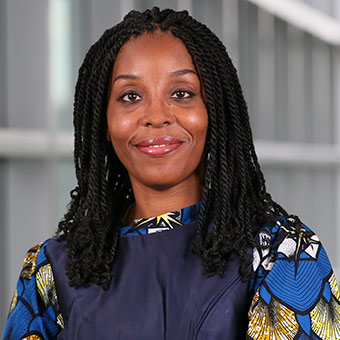
Professor Olajumoke Yacob-Haliso has just released her recent book, "African Refugees."
"African Refugees" is a comprehensive overview of the context, causes and consequences of refugee lives, discussing issues, policies, and solutions for African refugees around the world. It covers overarching topics such as human rights, policy frameworks, refugee protection, and durable solutions, as well as less-studied topics such as refugee youths, refugee camps, LGBTQ refugees, urban refugees and refugee women. It also takes on rare but emergent topics such as citizenship and the creativity of African refugees. "African Refugees" recognizes African agency and contributions in pursuit of solutions for African refugees over time but avoids the pitfalls of the colonial gaze — where refugees are perpetually pathologized and Africa is always the sole cause of its own problems — seeking to complicate these narratives by recognizing African refugee issues within exploitative global, colonial and neo-colonial systems of power.
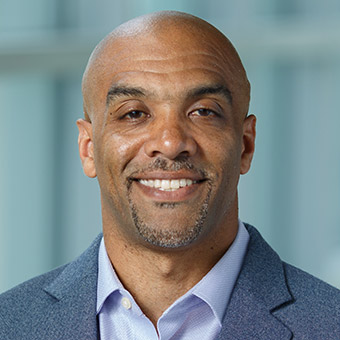
Professor Chad Williams is releasing his latest book on April 4 — "The Wounded World: W.E.B. Du Bois and the First World War"
When W.E.B. Du Bois, believing in the possibility of full citizenship and democratic change, encouraged African Americans to close ranks and support the Allied cause in World War I, he made a decision that would haunt him for the rest of his life. Seeking both intellectual clarity and personal atonement, for more than two decades Du Bois attempted to write the definitive history of Black participation in World War I. His book, however, remained unfinished.
In "The Wounded World," Chad Williams offers the dramatic account of Du Bois’s failed efforts to complete what would have been one of his most significant works. The surprising story of this unpublished book offers new insight into Du Bois’s struggles to reckon with both the history and the troubling memory of the war, along with the broader meanings of race and democracy for Black people in the twentieth century. Drawing on a broad range of sources, most notably Du Bois’s unpublished manuscript and research materials, Williams tells a sweeping story of hope, betrayal, disillusionment, and transformation, setting into motion a fresh understanding of the life and mind of arguably the most significant scholar-activist in African American history. In uncovering what happened to Du Bois' largely forgotten book, Williams offers a captivating reminder of the importance of World War I, why it mattered to Du Bois and why it continues to matter today.
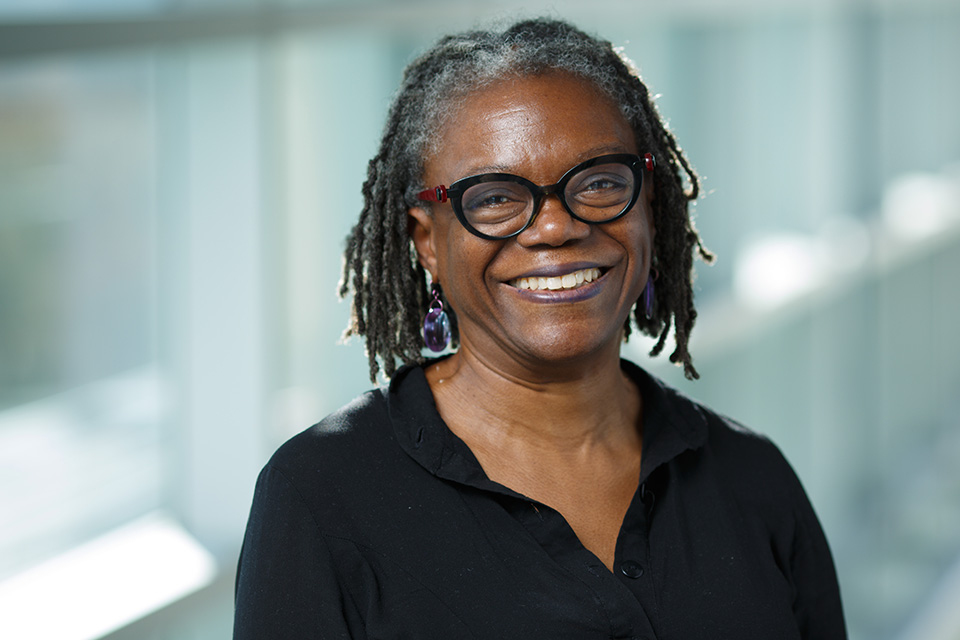
Professor Faith Smith is releasing her latest book in April 2023 — "Strolling in the Ruins: The Caribbean's Non-Sovereign Modern in the Early 20th Century."
In "Strolling in the Ruins," Smith engages with a period in the history of the Anglophone Caribbean often overlooked as nondescript, quiet and embarrassingly pro-imperial within the larger narrative of Jamaican and Trinidadian nationalism. Between the 1865 Morant Bay Rebellion and World War I, British imperialism was taken for granted among both elites and ordinary people, while nationalist discourses would not begin to shape political imagination in the West Indies for decades.
Smith argues that this moment, far from being uneventful, disrupts the inevitability of nationhood in the mid-20th century and anticipates the Caribbean's present-day relationship to global power. Smith assembles and analyzes a diverse set of texts, from Carnival songs, poems and novels to newspapers, photographs and gardens to examine theoretical and literary-historiographic questions concerning time and temporality, empire and diaspora, immigration and indigeneity, gender and the politics of desire, Africa's place within Caribbeanist discourse, and the idea of the Caribbean itself. Closely examining these cultural expressions of apparent quiescence, Smith locates the quiet violence of colonial rule and the insistence of colonial subjects on making meaningful lives.